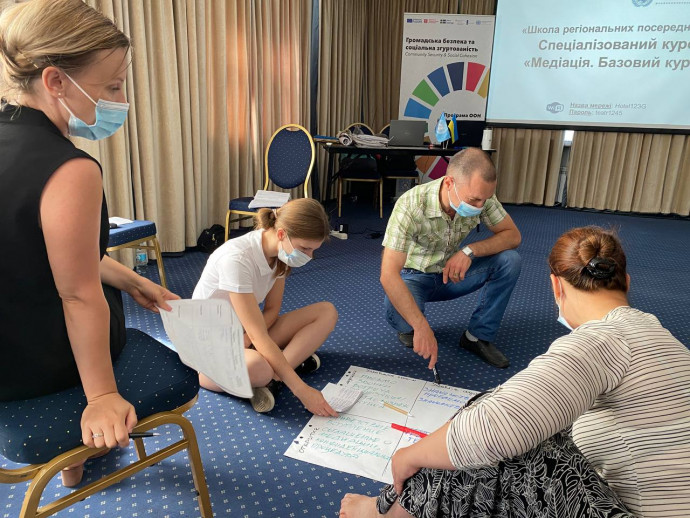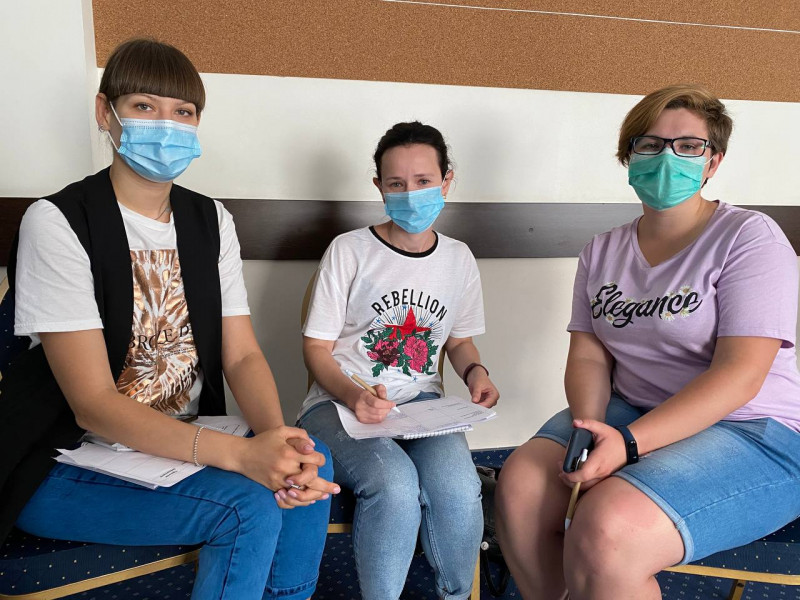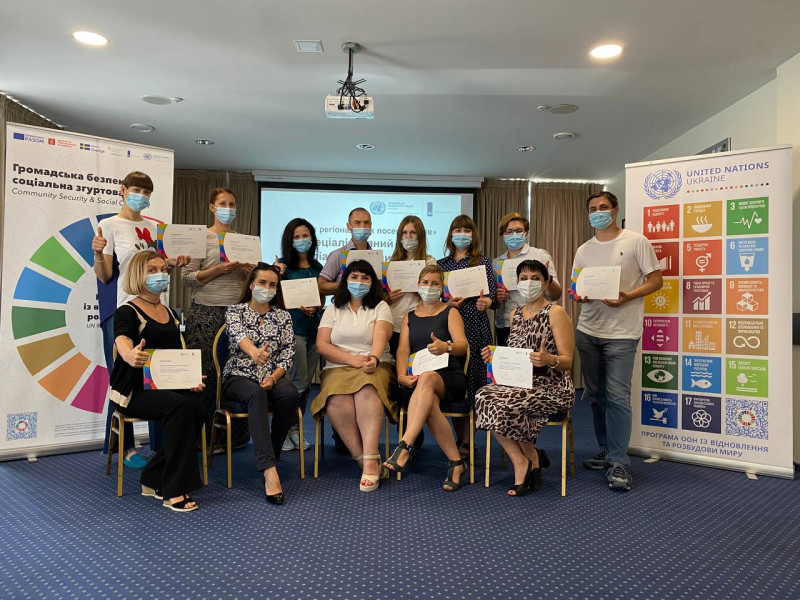"School of Regional Mediators" for resolving conflicts GISMAECR Zaporozhye region has completed its work.

The course program allowed its participants to:
- get tools for effective conflict and dispute resolution — mediation;
- learn independent skills in applying mediative technologies; gain knowledge about all the competencies of a mediator (conflictological, communicative, procedural, reflexive and legal);
- learn how to choose the most effective tactics and strategy for the negotiation process;
- bring the conflicting parties to a reasonable agreement that each of the parties will consider fair for itself;
- strengthen your personal communication and negotiation potential, as well as develop the necessary skills for confident handling of conflicts;
- get acquainted and work out the basic techniques for managing your own emotions and the emotional state of the parties to the conflict.

As a result of completing the course, its participants are now able to:
- invite to mediation;
- conduct mediation;
- work with the positions, interests and needs of the parties;
- apply legal norms;
- prepare the necessary documents;
- work with the emotions and fears of the parties;
- follow the principles;
- work in the ethical field of mediation;
- organize your activities.

Event organizer: United Nations peace reconstruction and development programme (UNRPP) with financial support from the Government of the Kingdom of the Netherlands.
The United Nations Programme for the reconstruction and development of peace is being implemented by four UN agencies: the United Nations Development Programme (UNDP), the United Nations Gender Equality and women's empowerment (UN Women), the United Nations Population Fund (UNFPA) and the Food and Agriculture Organization of the United Nations (FAO).
The program is supported by twelve international partners: the European Union (EU), the European Investment Bank (EIB), the US Embassy in Ukraine, as well as the governments of Denmark, Canada, the Netherlands, Germany, Norway, Poland, Switzerland, Sweden and Japan.

